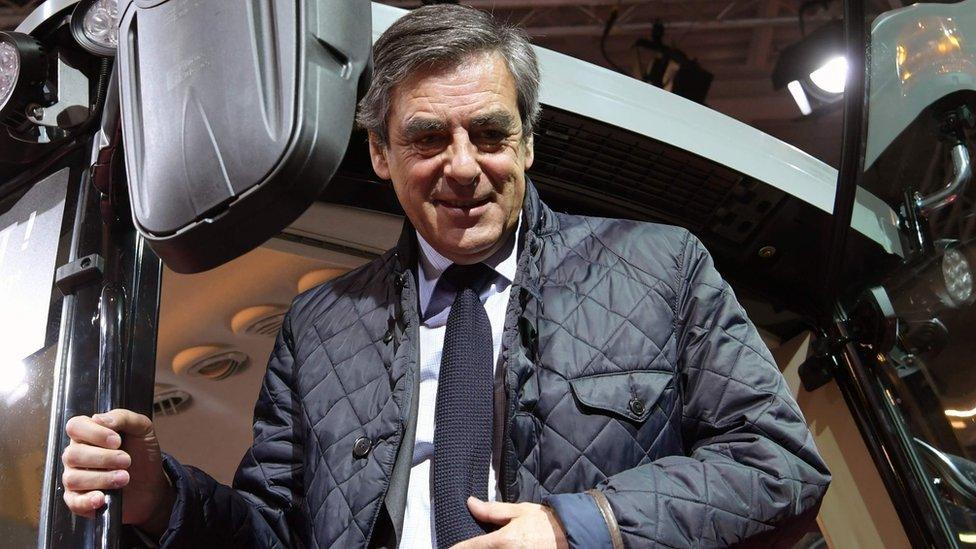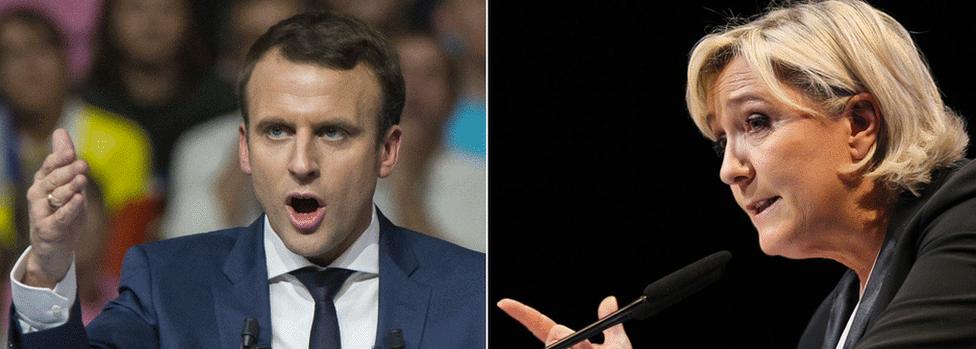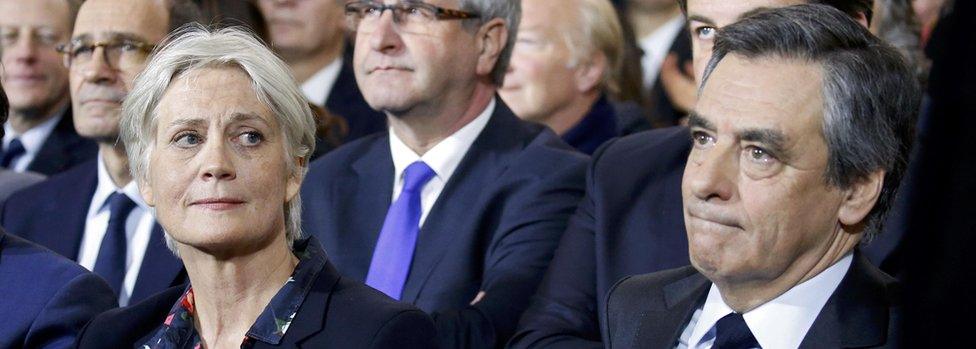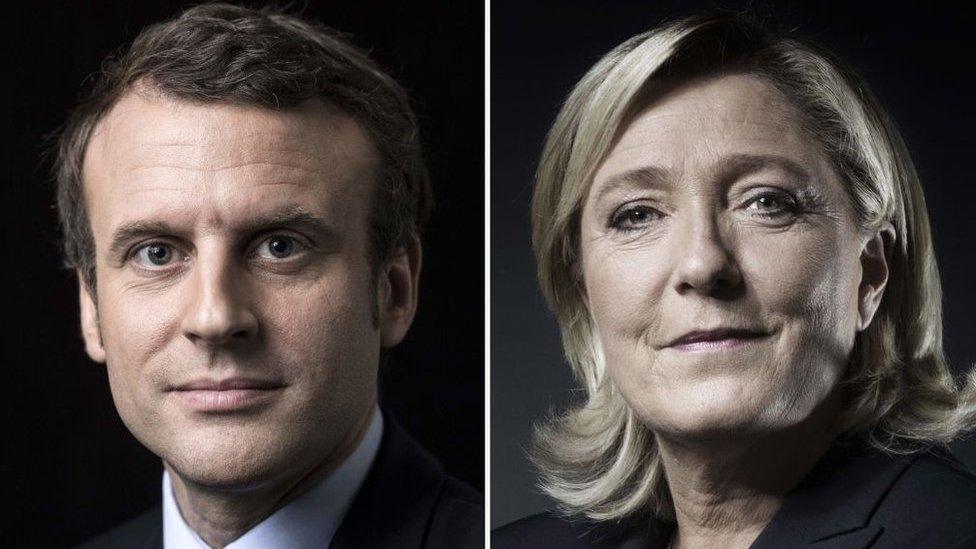French candidate Francois Fillon pulls out of key event
- Published

Mr Fillon's poll ratings have been hit by allegations surrounding payments to his wife and children
French centre-right candidate Francois Fillon has dramatically withdrawn from a visit to a major farm fair at the last minute, raising further doubts about his campaign.
One unconfirmed report said he had been summoned by magistrates investigating allegations that his wife was paid for years for work she did not do.
The "fake jobs" claims have damaged his campaign and he is currently third in opinion polls.
He is due to give a statement shortly.
Several Republican colleagues arrived at the Paris campaign headquarters ahead of his statement, amid reports that the lead judge in the "fake jobs" affair was formally placing Mr Fillon under investigation.
Mr Fillon was due to address reporters at the HQ, but his officials rejected suggestions that his campaign was in trouble. Amid a swirl of unconfirmed reports, Le Figaro website said that campaign director Patrick Stefanini had handed in his resignation but that it had not yet been accepted.
Political rivals seized on news that he had pulled out of his visit to the Paris agricultural fair, seen as an essential appearance for any prospective candidate.

Emmanuel Macron (L) and Marine Le Pen are seen by the polls as most likely to reach the run-off round of the election
"It's like symbolically giving up on your candidacy," said Florian Philippot, close adviser to far-right National Front (FN) candidate Marine Le Pen. The FN leader is currently topping the polls for the first round of the presidential vote on 23 April.
Who is Francois Fillon?
A former prime minister during Nicolas Sarkozy's presidency, he was selected late last year in national primaries held by the centre-right Republicans that attracted some four million voters.
For a time he was the favourite in the race to succeed Francois Hollande as president, but then came the "fake jobs" allegations in satirical weekly Le Canard Enchaine.
His appearances have recently been accompanied by loud protests and he has accused the government of allowing the campaign to turn into "a climate of quasi civil war".
Has he done anything wrong?
The allegations circling around the Fillon family focus mainly on his Welsh-born wife Penelope.

French MPs are allowed to employ family members but the role of Penelope Fillon (L) is unclear
The reports alleged she was paid €831,400 (£710,000; $900,000) over several years for working as a parliamentary assistant but reportedly had no parliamentary pass. She was also alleged to have picked up €100,000 for writing a handful of articles for a literary journal.
Another unconfirmed report from investigative website Mediapart said on Wednesday that Penelope Fillon herself was in police custody, but that was immediately denied by sources in Mr Fillon's Republican party.
Initially Mr Fillon said he would stand down as a candidate if his case was placed under formal investigation, but recently he insisted that he would fight on "until victory".
"The closer we get to the date of the presidential election, the more scandalous it would be to deprive the right and centre of a candidate," he said. Although he is trailing Ms Le Pen and Mr Macron in the presidential race, if he were to qualify for the run-off on 7 May, latest polls suggest he would comfortably defeat the FN leader.
Why is the farm fair so important?
For presidential candidates, showing up at the annual agricultural show in Paris is a must, an important political opportunity used by past leaders such as ex-President Jacques Chirac.
Ms Le Pen visited the fair on Tuesday and another of the front-runners for the presidency, Emmanuel Macron, was due to go on Wednesday. Even close members of Mr Fillon's entourage were unaware that he was pulling out of the event until the last minute.
The main item on Mr Fillon's campaign website on Wednesday was that he was spending most of the week meeting farmers.
The French countryside is still an important part of the national identity - and the election campaign, says BBC Paris correspondent Lucy Williamson.
- Published24 April 2017
